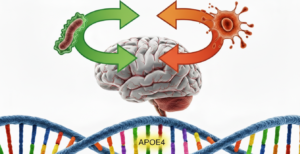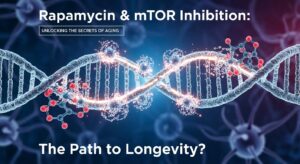What are Rapamycin benefits?
Rapamycin has several important uses in human medicine, highlighting a wide range of Rapamycin benefits, particularly in transplant medicine and other clinical and research areas. Here’s how sirolimus can help people, as also discussed in broader overviews of rapamycin and longevity science and its expanding medical role.
1. Prevention of Organ Rejection (Immunosuppressive Therapy)
One of the most well-established Rapamycin benefits is its role in rapamycin for organ transplant patients. Rapamycin is most commonly used to prevent organ rejection by suppressing the immune system, helping the body accept a newly transplanted organ. This is especially important in kidney, liver, and heart transplants, and is explained further in clinical summaries of how sirolimus helps patients.
Rapamycin works by inhibiting the mTOR pathway, which is crucial for the activation of T-cells responsible for immune rejection—a mechanism explored in detail in research on rapamycin and mTOR’s role in aging and disease.
- Kidney Transplant: Rapamycin is often used as part of a combination of immunosuppressive drugs after kidney transplants to reduce the risk of organ rejection.
- Liver and Heart Transplants: It is also prescribed for liver and heart transplant patients for the same protective purpose.
2. Cancer Treatment (Targeted Therapy)
Another significant area of Rapamycin benefits is rapamycin for cancer treatment, particularly cancers linked to abnormal mTOR pathway activity. Rapamycin and related drugs are used as targeted therapies for cancers such as:
- Renal cell carcinoma (RCC)
- Neuroendocrine tumors
- Tuberous sclerosis complex (TSC)–associated tumors
By inhibiting mTOR, sirolimus can slow the growth and survival of cancer cells that rely heavily on this pathway—an approach that aligns with broader discussions on rapamycin as a longevity and disease-modifying drug.
3. Treatment of Tuberous Sclerosis Complex (TSC)
Rapamycin for Tuberous Sclerosis is a well-recognized therapeutic application. Tuberous sclerosis is a genetic disorder that causes benign tumors to develop in multiple organs, including the brain, heart, kidneys, and lungs.
Rapamycin has been shown to reduce the size and progression of these tumors:
- Cerebral (brain) tumors: Rapamycin may help limit tumor growth and improve neurological symptoms in TSC patients.
- Renal (kidney) tumors: It also supports the management of kidney tumors commonly seen in TSC.
These benefits are often referenced in discussions on how rapamycin impacts abnormal cell growth and regeneration within the future of healthy aging research.
4. Pulmonary Lymphangioleiomyomatosis (LAM)
Rapamycin is used to treat pulmonary LAM, a rare lung disease that primarily affects women. The condition causes cystic lung growths that can impair breathing and lead to lung collapse. By inhibiting abnormal cell growth, rapamycin can reduce cyst progression and improve lung function—highlighting its broader role beyond transplantation.
5. Anti-Aging Research and Age-Related Inflammation
Although rapamycin is not yet widely prescribed for anti-aging purposes, research has demonstrated notable Rapamycin benefits in extending lifespan in animal models through mTOR inhibition. This has sparked interest in whether rapamycin can meaningfully reduce age-related inflammation, a biological driver of many chronic diseases.
Ongoing investigations summarized in what’s next for rapamycin in longevity research and analyses of whether rapamycin can truly help people live longer suggest promise, though more human data is still needed.
6. Other Potential Uses in Medical Research
Researchers continue to explore additional Rapamycin benefits in several areas, including:
- Neurodegenerative diseases such as Alzheimer’s and Parkinson’s, where mTOR inhibition may support cellular repair and neuron protection, a topic explored in research on whether rapamycin protects neuron cells.
- Autoimmune diseases, as rapamycin’s immune-modulating effects could help manage conditions like lupus or rheumatoid arthritis.
- Metabolic diseases, including type 2 diabetes, where rapamycin may influence insulin resistance and metabolic regulation, potentially through mechanisms similar to how rapamycin mimics caloric restriction.
Rapamycin should always be prescribed and monitored by a healthcare provider, as its clinical benefits must be carefully balanced against potential risks and side effects.
Summary of Rapamycin Benefits
In summary, Rapamycin benefits span multiple areas of medicine, including rapamycin for organ transplant, rapamycin for cancer treatment, and rapamycin for Tuberous Sclerosis, along with emerging research into aging and age-related inflammation. As interest grows—reflected in analyses of whether rapamycin is an effective longevity drug—careful medical supervision and evidence-based use remain essential.




